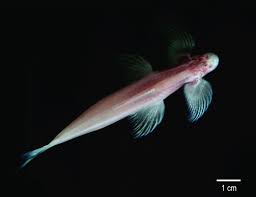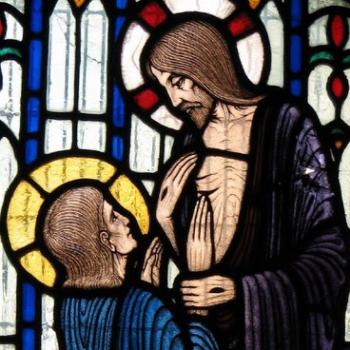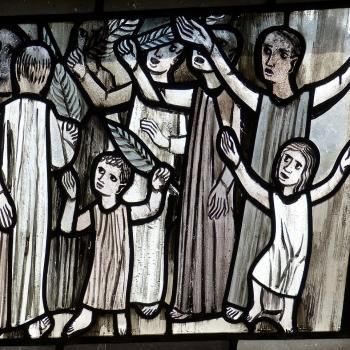To everything there is a season, and a time for every purpose under heaven. Ecclesiastes and The Byrds
Now that the Spring 2022 semester is in the books, in keeping with President Josiah Bartlett’s example from “The West Wing,” I immediately find myself asking “What’s next?” At my college, courses and teaching assignments are planned at least a year in advance, so “what’s next?” requires remembering what I have committed myself to (and forgotten about) over the past weeks and months. One good piece of news is that I’ll be teaching one of my favorite courses next spring, a course that if forced to choose from among many favorites, is the one that I would identify as my “signature course.”
I will be teaching “Beauty and Violence: The Problem of Natural Evil” for the fourth or fifth time, the first time in three years. It is an Honors colloquium, an exploration of what we might be able to say about what is greater than us through close observation and study of the natural world. My students, the majority of whom are products of parochial school education, and most of whom are likely to be non-humanities majors, found on a weekly basis that the God they were taught to believe in simply does not square very well with what we find in front of our faces.
The last time around, my students and I considered texts by theologians, biologists, philosophers, novelists, and a couple of people who cannot be categorized, with a Jesuit paleontologist, a Benedictine nun, and an Anglican physicist thrown in for good measure. My kind of course, in other words—I had a ball, and the students (per their comments in class and on discussion forums) had their minds blown. Our connecting theme was the following question: From careful observation of the natural world, what might we intelligently speculate concerning what or who put it in place?
About halfway through the course, we will spend two weeks or so with one of my favorite guys—Charles Darwin. An octogenarian Benedictine monk who spent his professional career as a high school physics teacher once told me that “Darwin has taught us more about God than all of the theologians put together.” With that in mind, a few years ago I imagined what a conversation between Darwin and God might be like—it is one of the ten most popular essays in the history of this blog.
How might the notion of evolution inform the person of faith? The final author in my recently concluded “Faith and Doubt” colloquium was Rachel Held Evans. Along with a few close friends and colleagues, she was a co-founder of “Evolving Faith,” an organization whose website says it “exists to cultivate love and hope in the wilderness, pointing fellow wanderers and misfits to God as we embody resurrection fo/r the sake of the world.” Rachel Held Evans gave the opening talk at the inaugural Evolving Faith conference in the fall of 2018, just a few short months before her untimely and tragic death in the spring of 2019.
Evans’ talk was titled “Evolution and Apocalypse.” She spends some time early on talking about her obsession with the BBC series “Planet Earth,” narrated by David Attenborough, whose story-telling gifts she likens to being “curled up in the lap of Bilbo Baggins, as he tells you all these wonderful stories about, like, the mating habits of tree frogs and bat poop and all kinds of stuff.”
One of the “Planet Earth” episodes focuses on the cave angelfish, a very rare creature found primarily in remote caves in Thailand. Cave angelfish are highly specialized creatures who have adapted to life in cave waterfalls. Evans describes them as
[U]gly as sin. They are slimy and pale and kind of worm-like. They don’t have any eyes. And they spend their days clinging to the walls of these caves; they can kind of feed on the bacteria that’s just rushing down into their face, which sounds cool, actually.
Whatever caused the ancestors of the cave angelfish to migrate to caves millions of years ago, they have adapted to a very harsh environment. While losing their skin pigment and their sense of sight, other sensory functions have improved. They even developed little microscopic hooks in their fins that allow them to cling to the walls of these caves like little bats.
And what on earth do these “ugly as sin” marvels of the evolutionary process have to do with faith? Rachel Held Evans continues.
When we first announced the Evolving Faith conference,, a lot of people asked me, What do you mean by evolving? You know, are you saying that your faith is more evolved or more mature, more enlightened, than others? And it’s funny because when I think about evolving faith, I don’t think about enlightenment or maturity or some kind of spiritual superiority. I think about survival. I think about those god-ugly angelfish clinging to the walls of that cave.
A living faith, like any living creature, must be—first and foremost—adaptable to often radically changing conditions. The strongest, fastest, or smartest are not guaranteed to survive; rather, those organisms that are capable of change are most likely to make it to the next day, century, millennium, or eon.
An evolving faith is one that survives by adapting to change: change in circumstances, change in the culture, change in one’s own heart and mind, change in relationships . . . An evolving faith can survive those things precisely because it can adapt to change, because it embraces those seasons of tearing down and building up, of planting and uprooting, of death and resurrection.
At some point during my upcoming “Beauty and Violence” semester I will ask my students a question that God asks Darwin in my imaginary conversation fueled by adult beverages:
God: Forget for a minute everything you’ve ever been told about what I’m like and start over. Let’s suppose that your theory of evolution by natural selection is largely correct (it is, by the way). On the basis of what that theory tells you about the world, what might you speculate about me?
Darwin: My first guess is that you like change more than stability, and novelty more than the familiar . . . I’d guess you also favor process over finality and imperfection over perfection . . . Most importantly, you apparently are committed to freedom and creativity above everything else—not just in human beings, but in everything. Within very broad parameters, life never stops recreating itself in new forms.
If the evolution/faith metaphor works, persons of faith should expect that similar characteristics will mark a vibrant and evolving faith. Change, novelty, process, freedom, and creativity are all in play. To be honest, that’s about as far from the faith I was handed in my youth as one could possibly get. And that’s a very good thing. I conclude with Rachel Held Evans’ closing prayer at her talk:
As we tend to the vulnerable things together, may the God of every season, the God of cave angelfish and autumn leaves, the God of survival and if not survival then death and resurrection, bless, preserve, and keep you, now and forever. Amen.

















